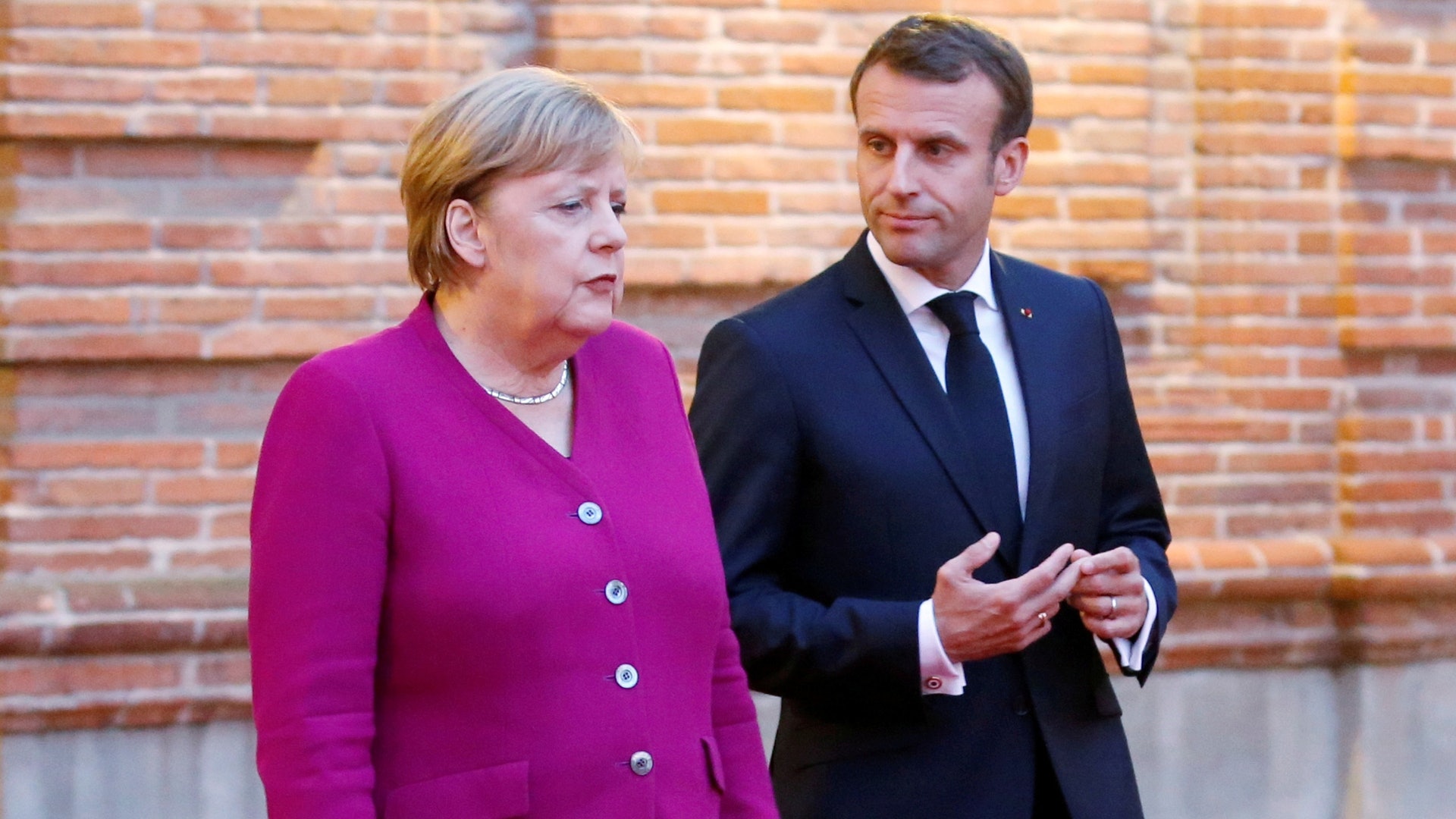“I understand that you really want to do earth-shaking politics, but I’m tired of helping you clean up the mess. Time and time again, I have to re-stick the broken pieces of the cup you broke before people can sit down and talk with tea. The New York Times reported on November 23 that German Chancellor Angela Merkel complained to French President Emmanuel Macron at a dinner celebrating the 30th anniversary of the fall of the Berlin Wall, and interpreted it as “France and Germany in NATO Crossfire. “
A spokesman for Merkel said on Monday (November 25) that the content of the report was “secret”, saying that the dialogue between the two was not “complaints, anger, and arguments.”
Merkel’s “mother and daughter”?
Macron has recently been controversial in EU affairs. There was a separate talk with Russian President Putin before the G7 summit in France at the end of August; then North Macedonia (formerly known as “Macedonia”), which was blocked by the adversary for joining the European Union, also changed its name. The status of descendants of the great emperor) officially launched the EU accession process. Coinciding with the 70th anniversary of the founding of NATO this year, Macron also pointed out that during an “Economist” visit, NATO has entered “brain death”, causing the EU system and the Merkel population to refute.
However, Merkel, who has already expressed his support for the “European Army” in a moderate manner, and even new EU members such as Ursula von der Leyen, who clearly stated that the EU must be accustomed to “language of power”, are not invisible. Macron’s need for “the EU to stand up and not rely on others in the new era”, all they disagree with is his “French Revolution” -style political blood and some of its specific practices.
After all, the German folk customs are quite different from the French. Observing the German philosopher Immanuel Kant’s ten years of hard work at home, he wrote the three major criticisms. Compared with France, which is the anniversary of the revolutionary masses invading the Bastille prison, the difference can be seen.
Therefore, even if the New York Times report is true, this is just a “mother-like” behavior of Macron, 41, who is now a “mother-type” politician who is 65 years old and will withdraw from politics in 2021. Advice only.
Ideas for the European Future Conference
The new European Commission will take office on December 1, and the last EU summit this year will be held on December 12, the latter will discuss the EU budget for the next seven years. At this time, Politico, a political website, announced on Tuesday (November 26) a concept paper that France and Germany are expected to discuss at the EU summit, advocating the establishment of a “Conference on the Future of Europe” and listing The conference focused on the topics, key issues and agendas, but it was a combination of Macron’s vision and Merkel’s practical operations. This shows that although the “German-French Alliance” has differences, it has not changed the consensus on cooperation between the two parties.
The “European Future Conference” envisaged by the two countries will involve all EU institutions and countries, and emphasize the input of civil society. It will be led by a senior European personality; its purpose is “to handle all Issues, with the goal of making the EU more unified and more sovereign, “including topics such as national defense security, digitalization, climate change, immigration, the EU’s” social market economy “model, and more.
All these issues involve difficulties that EU countries have been unable to reach for years. In terms of national defense and security, France has always had the idea of an independent EU, while Germany wants to increase its influence under the NATO framework, and members of the former Soviet Union such as Poland are military pro-Americans. On climate change, the European Parliament has still not been able to decide whether to adopt the term “climate crisis”. On the issue of EU economic integration, debtor countries have always been struggling with financially stable countries, and how to fill the budget gap after Brexit is a major dispute at the EU summit in December.
However, under all kinds of controversy, the EU is not insecure. For example, on the issue of immigration, the European Commission decided on November 8 to significantly expand the establishment of the Frontier Management Team of the European Union, from 700 today to 10,000 in 2027, hoping to share the root of the gods with the strength of the EU Central The immigration control load of countries bordering the Convention maintains the free movement of people in the region.
In addition, on the problem of the integration of the European banking system, Germany has also put forward a proposal for the European Common Deposit Insurance Mechanism, which has changed the previous fear of these mechanisms being similar to Germany’s repayment on behalf of southern European countries. Financially sound, Germany requires banks in one country not to concentrate on the risk of national debt, but to diversify their investments.
If the “European Future Conference” can effectively integrate the above problems, and promote it in a purposeful and systematic way, Macron’s ideals for the European Union can be considered to be dawning, even if it cannot be realized immediately.
However, before addressing these substantive issues, the German and French initiatives argued that the EU must first resolve the dilemma of “the European people feel that the EU is far away from themselves.” Therefore, the first stage of the “European Future Conference” will focus on the issue of “EU democratic operation”, including how to establish a transnational election list in the European Parliament, and encourage the general public to participate in EU institutional affairs.
At the same time, France and Germany also proposed a “bottom-up” decision-making approach to the EU ’s decision on the future direction of the EU, with the participation and guidance of its experts, to achieve visible and concrete results.
Some British media saw the two countries’ emphasis on “popular participation” and laughed at “Macron and Merkel finally acknowledged EU undemocracy”, implying that the decision to leave the European Union was correct. However, in the German-French alliance’s concerted efforts to promote EU reforms, the “last laugh” may not be Britain, which has left the country alone after leaving the EU.












